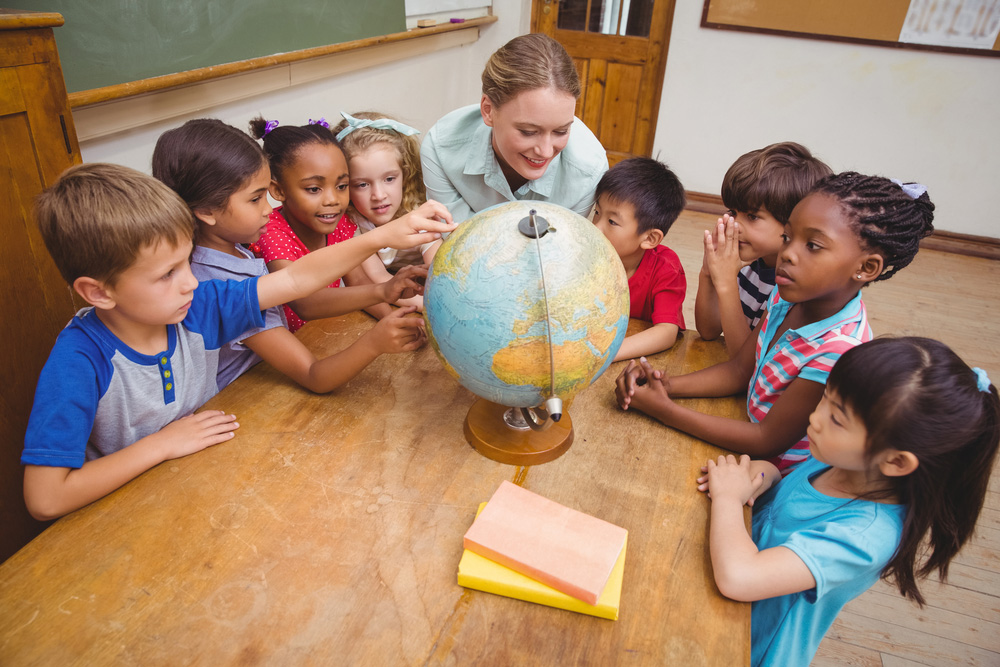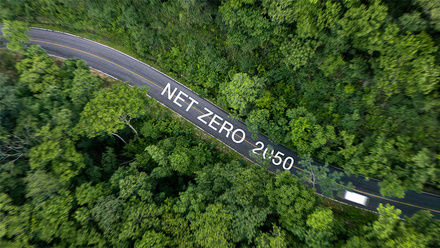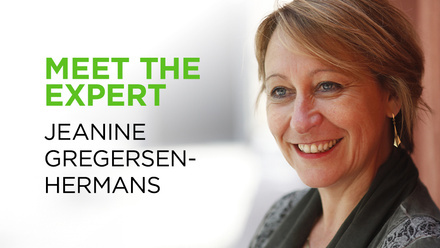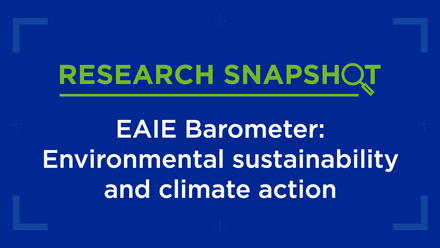Start them young: primary school teachers should teach SDGs

While our Winter issue of Forum focuses much on how international higher education can make an impact on the Sustainable Development Goals (SDGs), the final blog of Forum Week makes the case that we must start much earlier than university level. Implemented in 2015, we now have only 13 years to achieve Agenda 2030. Thus, it is crucial that we incorporate SDG themes into the curricula of those who will be coming of age at that time in order to truly achieve an inclusive global society by 2030.
AGENDA 2030, with its SDGs, is the most important global development framework for the coming 14 years. This agenda succeeds the Millennium Development Goals (MDGs), which expired on 31 December 2015. With regard to the MDGs, many countries of the world had agreed upon eight development goals which were meant to eradicate poverty in developing countries. Interventions exclusively took place in developing countries because it was believed that that is where the problems and their causes were based.
However, with the SDGs, there is the realisation that there are also issues in developed countries that need to be eradicated in order to realise shared growth and equality at the global level. It is a task for all countries of the world to consider their values, perspectives and behaviour in order to achieve an equitable world and mitigate negative consequences for all.
Working on the SDGs over the 15-year period is meant to realise a transformative shift in the way we view the world, deal with one another and steer development. The conviction is that the way we have been doing this all along has led to gross polarisation, inequality and misery, and is not sustainable.
Youth: the crux for achieving a transformative shift
Developing a sense of one’s own role in sustainable and inclusive global development can best be taught at the primary education level. Young children are generally open minded and receptive to taking on new knowledge, attitudes and behaviour. It is actually not the adults of today who desperately need the transformative shift, but the adults of tomorrow who today need to acquire the competences that will make them create a better day than what we have done. This is the most sustainable approach.
Due to their very young age, pupils in primary education can rarely partake in international mobility within the context of their education. Fortunately, global citizenship skills cannot only be acquired through a visit outside one’s own national borders. There are enough possibilities in the local environment to achieve intercultural socialisation. Most societies worldwide are culturally diverse and can serve as a practical context for forming the global citizenship competences of pupils. Internationalisation at home is, therefore, a perfect form of internationalisation at the primary school level. Pupils can become interculturally competent without even leaving their school or home environment.
When designing Internationalisation at home activities, the primary school teachers can ask themselves “How can I deploy the cultural diversity that is present in the classroom, school, neighbourhood and city to achieve intercultural awareness and socialisation?” The greatest problem in a globalised society is not how to deal with unknown cultures outside your national borders, but how to deal with the global dimension in the local. Both voluntary and involuntary migration as part of globalisation are increasingly changing the cultural composition of host societies worldwide. This means that pupils, even those in remote regions, are increasingly growing up with diversity. It is the duty of educators to provide pupils with constructive tools for dealing with this reality. Education would be short-changing pupils by not giving them these tools.
In order to contribute to the positive principles of the SDGs it is important that activities also focus on the opportunities and positives of globalisation, diversity and inclusiveness instead of only focussing on the dilemmas. This way, pupils receive a balanced view of what it means to be a global citizen and what one’s own role and responsibilities are in creating a sustainable and inclusive world.
The role of international higher education
The European Commission has recently published a renewed agenda for higher education where they plead that universities should have a role that has more societal relevance. They specifically mention the role of contributing to reducing inequalities in societies. They have also recently published a report that pleads for internationalisation of initial teacher training so that future teachers are better equipped to deal with the diversity resulting from globalisation. Within higher education institutions, initial teacher education programmes are best poised to take on this role of dealing with societal challenges. They are the ones who produce teachers that can teach future generations how to play fair and take responsibility for the world in which they live.
Teachers have a key role in creating internationally competent pupils. In fact, they are the key variable in achieving this transfer of competences since they are directly responsible for forming young minds. Children of primary school age are not able to organise their own learning experience and rely on the initiative of their teachers. Teachers have a critical role indeed and an internationally competent society and labour population – as well as the achievement of a population with a sustainable mind set – rest almost entirely on them.
It is within the teacher’s education that teachers can explore effective ways of integrating the principles of the SDGs into the primary school curriculum. This may in turn mean an update of the teacher training curricula within higher education institutions to incorporate the new ways of thinking embodied in the SDGs. Tomorrow’s society should not be the society we are today with regard to sustainability issues.
A call to action
The focus on the young generation is the best way to ensure the adults of tomorrow perform better than we ourselves have. In addition to imparting subject knowledge and skills, education also has a socialisation role. By creating links to the values underpinning Agenda 2030, this socialisation can be achieved within the international dimension.
Teaching the priorities of the SDGs in the primary school is the most effective, sustainable approach to delivering to the labour market in 2030 the first cohort of global citizens that actively worked with the SDGs and thinks differently – A cohort that embraces inclusiveness and prosperity for all.
Mtinkheni Gondwe is Strategic Policy Advisor at Nuffic, the Netherlands.
This is the final blog post in Forum Week on the EAIE blog, where we post articles not included in the magazine. Be sure to check in all week for great content on the Sustainable Development Goals. Download your magazine now and be on the lookout for your printed copy in the mail soon. Not yet a member but want to see what the magazine is all about? Download the editor’s pick then join us today!






